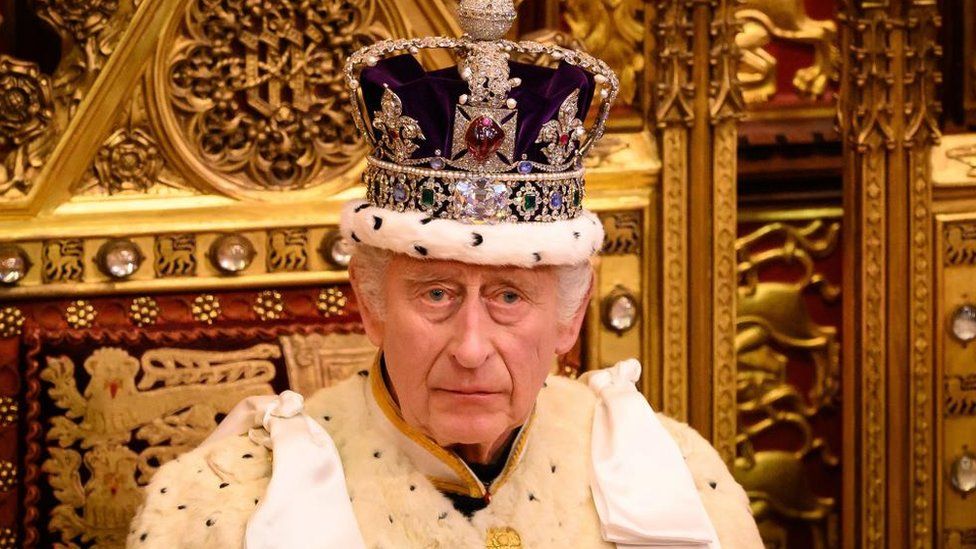ARTICLE AD BOX
 Image source, PA Media
Image source, PA Media
By Chris Mason
Political editor, BBC News
The State Opening of Parliament felt like a ceremonial comma. A punctuation mark in an autumn of familiar political sentences.
The government set out the hoped-for legal architecture to make their recent promises a reality.
Those hoping for a frisson from the unexpected will be deflated.
But Downing Street never suggested this would be a flurry of the fresh; a wagon load of new ideas.
Instead, this felt very Sunakian: iterative, rather than explosive, but with an emphasis on ideas he is personally passionate about, like banning young people from smoking.
There is some interesting detail in this idea, including the government considering extra taxes on vapes.
As I explored in an earlier blog, I do wonder if the plans on smoking, which the Scottish and Welsh governments agree with and there's support for in Northern Ireland too, could become one of those societal turning points; a long lasting social change.
It is not without its critics, former Prime Minister Liz Truss among them, but there is widespread cross-party support for it. And there is a political desire to get on with it.
The government launched an eight-week, UK-wide public consultation on it in the middle of October.
It means that by early December they will be able to crack on with their desire to "create a smokefree generation", as a briefing document accompanying the King's Speech described their ambition.
The government's plans do include clear dividing lines with Labour, which ministers are attempting to sharpen before the general election campaign.
The most stark is on oil and gas licencing under the North Sea.
Downing Street argue this is a pragmatic approach towards the switch to greener energy. But Labour have committed to grant no more licences if they win the election.
And the focus on crime - while potentially popular with a wide cross-section of the electorate - appears framed with a particular eye on Conservative voters recent and long-standing, a big chunk of whom polls suggest are disillusioned with the party.
They are not without at least a splash of internal party controversy.
Take the plan to allow the police to enter a property without a warrant to recover a stolen phone, for instance, where it is obvious via a tracking app that that is where the device is.
"The right not to have the state kick your door down without judicial approval is a massively important British value," the former cabinet minister David Davis said.
"This is one of the fundamental foundation stones of free British society. It's there with jury trials and it's there with the presumption of innocence."
And what of that idea from Home Secretary Suella Braverman about homeless people living in tents who "are living on the streets as a lifestyle choice"?
"What I want to stop… is those who cause nuisance and distress to other people by pitching tents in public places," Mrs Braverman wrote.
Her remarks at the weekend prompted a huge row and an obvious awkwardness from some of her colleagues when asked whether they agreed with her.
And then we were told it was still being scrutinised within government.
I hear that prior to her going public with her idea, concerns were raised privately within government about its practicality: whether it could be challenged in the courts.
The question now is whether it ever sees the light of day again.
But let's take a step back and ask a bigger question: does all of this add up to enough to change the political weather?
For those familiar political sentences I mentioned include the increasingly widespread expectation here at Westminster that the Conservatives will lose the next election.
And given the familiarity of much of what we heard from the King, the concern of Tory MPs will be that these measures - however individually laudable or otherwise - simply won't be enough.

 1 year ago
23
1 year ago
23








 English (US) ·
English (US) ·